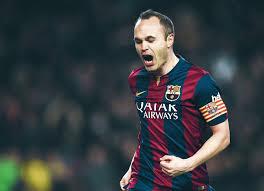A legendary player in world football, Andrés Iniesta is known for scoring the game-winning goal that gave Spain an epic triumph over the Netherlands in the 2010 World Cup final. However, Iniesta’s recently published memoirs, “La mente también juega,” courageously reveal a more nuanced story that lies beyond the fame and honors. In addition to his remarkable career, this book explores his hardships, especially his fight with depression.
In 2009, while enjoying his second Champions League triumph with FC Barcelona and getting ready for another World Cup with the Spanish national team, Iniesta went through a troubling period of emotional upheaval. Iniesta faced severe distress even though he appeared to be having the best life possible. “All of a sudden, you become ill. You have no idea why, but it just occurs. You don’t feel any better one day after another. You are ill despite undergoing a number of medical tests, none of which reveal any issues. In his memoirs, he openly admitted, “You can’t stop obsessing over this situation that is completely foreign to you… this unfamiliarity only deepens your anxiety.”
The football player’s cathartic release from this introspection reflected a period in which he appeared to have accomplished everything yet struggled with inner demons. Iniesta spoke of leading a “double life” that was “anonymous and dark,” in contrast to a “happy” public presence. “I felt like I was lying to those around me while I wasn’t at home. They shouldn’t have known anything. As a result, I would stay away from uncomfortable circumstances,” he revealed. He eventually felt “empty”—as though he had nothing left inside of him.
But at home, when he no longer felt the need to conceal his own emotions, the burden of his emotional problems would frequently resurface. “After that, I would cry in the shower. “I sobbed without anyone noticing,” he revealed. The untimely death of Dani Jarque, a professional colleague and friend, dealt him yet another blow. “I was paralyzed when I received the news. Since Dani had been my buddy for a long time, I experienced terrible days. He said that after it, “everything went south…it got dark.”
Thankfully, Iniesta’s wife, Anna Ortiz, and his passion for football provided him with unwavering support, which fueled his will to keep improving even in the most trying circumstances. “Maybe I started out too strong with the medication, possibly too much of it, but the feeling of wanting to train was a small yet significant victory for me,” he said. It is evident from these moving observations that he never considered giving up, and it was this resolve that finally carried him from hopelessness to the height of achievement.

